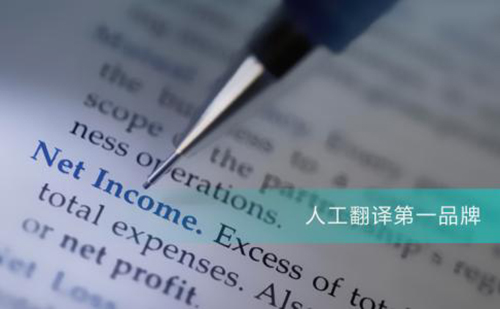
作者:译帮翻译 日期:2019-04-24
汉英互译时,它们之间表达的最大区别是,英语句子趋向于形合,而汉语的句子趋向于意合来组句。英语组句时,需要借助关联词(关系词、连词和连接性副词)、介词和其他连接方式(宾语、主语、表语、状语从句等等),重结构;而汉语组句时,就像记录流水账一样,行云流水的写下来,其句子的意义的紧密性、连贯性通过句子之间靠内在、隐性的逻辑关系来表达,所以汉语的意思中可能存在包含、因果、递进等关系,翻译时要提现出来。

例如:
1、人们面对社会的转变,消费观念潜移默化地发生着改变。
解析:这句话通过when引导状语从句,即可把其汉语的内在逻辑表达出来。
译文:People’s consumer senses have also been changing in a subtle way when they are faced with the social transformation.
2、正是由于中国传统节日有着如此深厚的民族精神的蕴含,所以,其传承民族血脉、提升民族精神的价值,维系民族团结、社会和谐、家庭和睦的价值,激发与释放情感、协调人与自然关系的价值,是任何文化形式都难以替代的。
解析:这句话虽然很长,但是句子间因果关系很明显。其原因是“正是由于中国传统节日有着如此深厚的民族精神的蕴含”,结果是“其传承民族血脉、提升民族精神的价值,维系民族团结、社会和谐、家庭和睦的价值,激发与释放情感、协调人与自然关系的价值,是任何文化形式都难以替代的”,其中该句的结果蕴含罗列关系,属于次要成分,在英语中表达中,先把主要成分表达出来,再把次要成分放在主要成分的后面。
译文:It is because Chinese traditional festivals contain such a deep national spirit, that their values are hardly replaced by any cultural forms of passing on generations, enhancing the national spirit, maintaining the national unity, social harmony, family harmony and stimulating and releasing emotions and in harmony with the relationship between human beings and the nature.
3、所以,守护、继承、发展我们的传统文化,更需要去其糟粕、取其精华,这样才能让传统文化在改革开放的时代浪潮里释放出更多的文化红利和社会正能量。
解析:“守护、继承、发展我们的传统文化”和“更需要去其糟粕、取其精华”是措施,通过“守护、继承、发展我们的传统文化”来“去其糟粕、取其精华”;结果“才能让传统文化在改革开放的时代浪潮里释放出更多的文化红利和社会正能量”。
译文:So, only by protecting, inheriting and developing our traditional culture, especially to adopt the essence and abandon the dregs, can more culture profits and social positive atmosphere be released out of our traditional culture in the era of open-up and reform.
 13910090965
13910090965